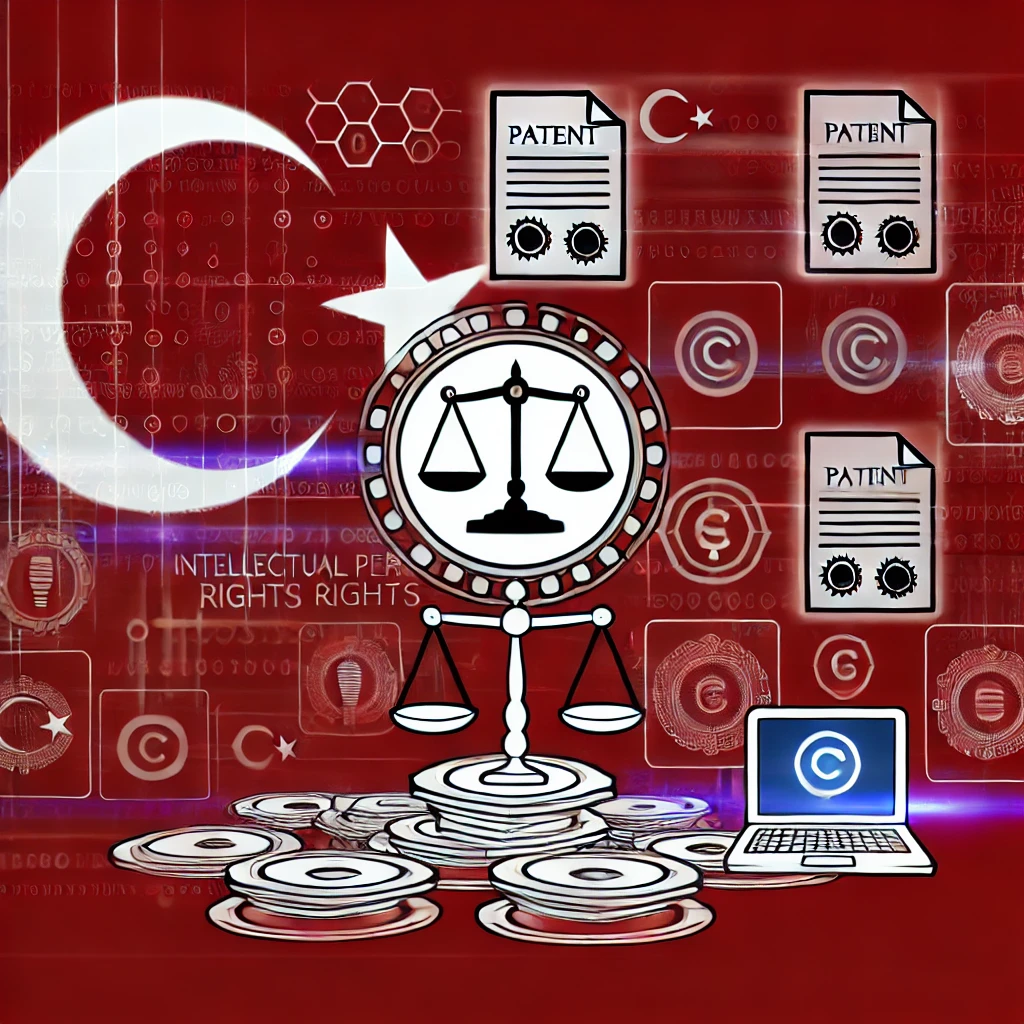Introduction
Intellectual Property (IP) rights are essential for technology firms to safeguard their innovations and creative works. For foreign technology companies, maintaining robust patent and copyright protection in Turkey is critical to ensure market competitiveness and deter infringement. However, complex legal procedures, inconsistent enforcement, and administrative challenges pose significant hurdles for these companies. This article provides an overview of the legal framework governing patents and copyrights in Turkey, identifies key challenges for foreign technology firms, and offers solutions for effective compliance and enforcement.
1. Legal Framework for Intellectual Property in Turkey
- Industrial Property Law (Law No. 6769)
- The Industrial Property Law, enacted in 2017, regulates patents, trademarks, designs, and utility models in Turkey. It aligns with international treaties such as the Paris Convention, the Patent Cooperation Treaty (PCT), and the European Patent Convention (EPC).
- Patents are granted for 20 years, offering exclusive production, licensing, and sales rights to the owner.
- Copyright Law (Law No. 5846 on Intellectual and Artistic Works)
- Copyrights in Turkey are governed by Law No. 5846, providing protection for software, databases, digital content, and artistic works. Copyrighted material is protected for 70 years following the death of the author.
- International Agreements
- Turkey is a party to the TRIPS Agreement (Trade-Related Aspects of Intellectual Property Rights) and the Berne Convention for the Protection of Literary and Artistic Works, which ensures alignment with international IP standards.
2. Challenges Faced by Foreign Technology Companies
- Patent Infringement and Enforcement Issues
- Although patents are protected by law, foreign firms often encounter infringements and delays in enforcement due to court backlogs and limited expertise among local judges in handling complex technology-related disputes.
- Parallel Imports and Exhaustion of Rights
- Turkey allows parallel imports, where legally sold products in other countries are imported into Turkey without the patent holder’s consent. This practice undermines the pricing strategies and market exclusivity of foreign firms.
- Copyright Violations in Digital Platforms
- With the rise of e-commerce and digital platforms, copyright infringement—such as unauthorized distribution of software or media—has become a major issue. Enforcing digital copyrights remains difficult due to jurisdictional limitations and the need for constant monitoring.
- Administrative Burdens and Compulsory Licensing
- Foreign companies must navigate compulsory licensing provisions, which allow the government to issue licenses for patented technologies in public interest scenarios. This creates uncertainty for companies relying on exclusive rights.
3. Adaptation Strategies and Solutions
- Proactive Patent and Copyright Portfolio Management
- Foreign technology firms should ensure that patents and copyrights are properly registered in Turkey, leveraging both national and international frameworks such as the PCT and EPC.
- Collaboration with Local Legal Experts
- Partnering with local intellectual property attorneys helps foreign companies navigate the complex Turkish legal system, particularly during litigation or when responding to infringement.
- Digital Copyright Monitoring Tools
- Companies can use automated copyright monitoring tools to track unauthorized use of their software, media, or digital content on Turkish platforms and initiate legal action promptly.
- Leveraging International Trade Agreements
- Foreign companies can invoke provisions under international trade agreements to challenge infringement and seek dispute resolution through international arbitration or the World Trade Organization (WTO).
4. Legal Remedies and Enforcement Mechanisms
- Patent Infringement Litigation
- Patent disputes are resolved through specialized commercial courts. However, companies often seek interim injunctions to prevent ongoing infringement while litigation is pending.
- Administrative Remedies through the Turkish Patent and Trademark Office (TÜRKPATENT)
- The Turkish Patent and Trademark Office offers dispute resolution services for issues related to IP rights, including invalidation requests and oppositions to trademark or patent registrations.
- International Arbitration and Dispute Resolution
- For cross-border disputes, foreign companies can use international arbitration, and awards are enforceable under the New York Convention.
Conclusion
While Turkey offers a robust legal framework for patent and copyright protection, foreign technology companies must overcome administrative challenges, infringement risks, and enforcement delays to safeguard their innovations. Collaboration with local partners, monitoring digital platforms, and proactive IP portfolio management are essential strategies for effective protection. Moreover, regulatory reforms aimed at strengthening enforcement mechanisms and aligning patent laws with global standards will enhance the investment climate for foreign technology firms operating in Turkey.

Yanıt yok